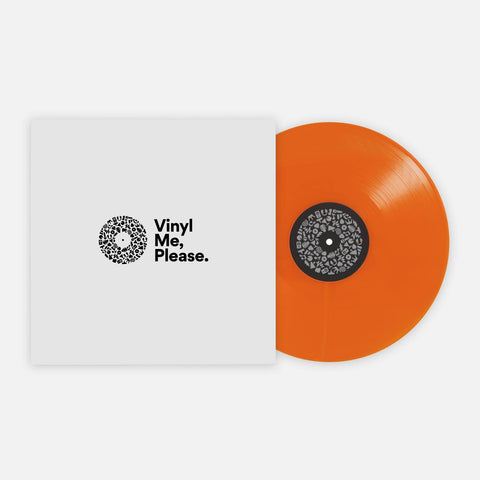Charting The Evolution Of Cellphone Technology Using Only Beyoncé Songs
From Sidekick To iPhone And Back Again
For as long as humankind has had access to technology, we’ve used it to feed into guilty pleasures, keep tabs on significant others, call out haters as we see fit, and post jealousy-inducing selfies. As the cultural landscape has shifted to a more digitally-focused society, the vernacular in popular music has morphed to reflect the access gadgets and the internet have offered. Despite existing in a talent echelon all her own, Beyonce has made a lyrical evolution in line with the technological advances seen worldwide. From the internet dissing days of Destiny’s Child to the notable absence of tech on Lemonade, Beyoncé has utilized the universality of the future, voyeurism and love in her lyrics.
A cut from Destiny’s Child self-titled 1998 debut, “Killing Time,” details the protagonists’ waiting for a partner to return home. The narrative focuses on a faithful woman sitting on the stairway “‘til a quarter 'til 2” killing time until her love interest’s homecoming. While she waits, however, she maintains patience, insisting she’s got “nothing to do baby hey / But twiddle my thumbs and think” despite questioning his fidelity. Without the deep influence of social media to track a lover’s whereabouts, the song plays as an innocent tale of a devoted woman hoping the object of her affection makes a choice to fully embrace her love.
Concurrently, 1998 brought one of the earliest internet scandals to the surface when rumors of then-president Bill Clinton’s involvement with White House intern Monica Lewinsky appeared on The Drudge Report in January (a scandal Beyoncé would later reference in her lyrics). The news and gossip world entered a new phase of reporting where the line between the two was increasingly blurred, a theme that would soon make its way into songwriting.
The following year, as the lead single for Destiny’s Child’s The Writing’s On The Wall, “Bills, Bills, Bills” introduces the notion of a man using Beyoncé’s cell phone, driving up the bill and refusing to pay despite the proof she offers that most of the calls are to the accused’s mother.
As using technology to disprove lies -- or prove infidelity -- became the norm, Destiny’s Child embraced such lyrical themes, most notably on the title track from 2001’s Survivor. “You know I'm not gon diss you on the internet / ‘Cause my mama taught me better than that” became a rallying cry for those with more self-worth than to trash an ex online, an act that became increasingly popular with the emergence of personal blogs like Live Journal, blogger.com and Xanga.
Beyoncé launched her solo career in 2003 with Dangerously In Love, the album that would spawn hits like “Crazy In Love” and “Naughty Girl,” and featuring a collection of songs detailing the beginnings of a romantic relationship. On “Yes,” for the first time, Beyoncé references giving out her cell phone number to a stranger and hoping to hear from them (and how such a suitor turns sour when she requests they take it slow). Some of the earliest camera phones, like the popular Nokia 6600 (and a flip version Kelly Rowland mysteriously received an Excel spreadsheet text on in the “Dilemma” music video), began to make their way into the hands of the everyman while celebs like Paris Hilton and Lindsay Lohan were flashing their buzzy Sidekicks. Young people’s social lives and identities were becoming streamlined with devices that served more ubiquitous purposes and the beginnings of that boom was nonchalantly documented in lyrics like “I felt like we could talk all night / So I gave my number to you” and later in the song, “You said you’d call me later / I said don't call no more.”
Such digital identity shaping was furthered when Twitter was founded in 2006. With the advent of the platform, discussing oneself online and developing a personal brand became more commonplace. Beyoncé herself integrated the blossoming online landscape into her lyrics on “World Wide Woman,” a cut from the deluxe edition of B’Day, which was released in 2007. “World Wide Woman” is the ultimate pun, using language that wasn’t a part of the popular vernacular even a decade prior. To the 2007 listener, Beyoncé’s comparing herself to the internet, inviting users to “click right here, come find me, I'll assure you the places you've never been I'll take you” served as the perfect metaphor for the wide reach of the modern international star - and the reach of the web.
The 2008 presidential campaign dominated pop culture with ads likening Obama to Paris Hilton and Britney Spears, and Tina Fey and Amy Poehler’s caricatures of Sarah Palin and Hillary Clinton on Saturday Night Live. And just over a year since the iPhone was introduced, the second generation 3G sold one million phones in its first weekend.
On Beyoncé’s I Am… Sasha Fierce, both a solo original and extended remix featuring Lady Gaga, “Video Phone” focused on a gadget itself -- and the access a device plays in romantic relationships. In the song, a protagonist utilizes her femininity and sexuality for a knowingly voyeuristic partner wielding a video phone. Beyoncé had long before sung about putting herself in a position of visibility to claim center stage over a man’s attention or to scorn those who have wronged her, but now places a barrier between her physicality and the other’s. The phone serves as the tool to proliferate performance, a memento best kept readily available at all times.
Beyoncé and Gaga’s follow-up collaboration, from the latter’s 2009 EP The Fame Monster, “Telephone” focused on the difficulty in unplugging, especially when the means of keeping tabs on a significant other were contained in a smartphone. Beyoncé’s verse was the first time her lyrics focused on the wider trend of constant communication -- or rather a partner’s unwavering desire to be omnipresent via digital correspondence as a method of control -- and the paranoia and insecurity that comes from an unanswered text. She counters an onslaught of messages and missed calls with female empowerment and puts a digitally overbearing boyfriend on the backburner for a night out: “Boy, the way you blowin' up my phone / Won't make me leave no faster / Put my coat on faster / Leave my girls no faster.”
With her self-titled 2013 album, Beyoncé displayed the importance and immediacy in digital-first releases. Coupled with the element of surprise, the album paved the way for other artists to emulate and reap the viral benefits of a sudden album drop (which she acknowledges in her verse on Nicki Minaj’s 2015 song “Feeling Myself”). In a culture where instant gratification runs deep, it’s no surprise Beyoncé references Instagram for the first time on “Yonce/Partition” -- “And every girl in here gotta look me up and down / All on Instagram, cake by the pound / Circulate the image every time I come around” -- and again on “Rocket” -- “We're so much more than pointless fixtures / Instagram pictures.” This, and Beyoncé as a whole, act as a celebration of female visibility and sexuality -- how there is life beyond cultivated social media images despite Beyoncé’s own controlled presence online. The album event went so far as to inspire declarations of flawlessness in both Instagram selfies and words of praise for others, empowering those to revel in self-confidence.
By the time virtual sleuthing reached its pinnacle, Beyoncé cast aside such cultural phenomena on the landmark Lemonade, instead focusing on the emotional intricacies of marriage, family and womanhood rather than the modes of how those things could be destroyed. Throughout the album, there are only a handful of references to the digital age: "How did it come down to this? / Scrolling through your call list" ("Hold Up") and the oft-quoted "He better call Becky with the good hair" ("Sorry"). The terms of her technology use have been in an aid to prove unfaithful behavior, not to discover the infidelity itself. The complex narrative on Lemonade focuses on the physical -- a lover’s absence, a father’s influence, a woman scorned -- rather than the superficial of social media, adding to her mystique due to her relatively private online presence.
The album’s rollout, however, focused on a more digital-savvy marketing plan: an HBO special and Tidal-only streaming. With that, Beyoncé has positioned herself as the new industry standard in terms offering album exclusivity via a subscription service.
By pushing the boundaries on the traditional album release, Beyoncé sets an example for the new digital age of music, something that transcends lyrics. She has, by proxy, informed the very same digital world she has chronicled and referenced by pushing social media trends and visual consumption of music.
Allie Volpe is a writer based in Philadelphia who shares a birthday with Beyonce. She enjoys sad music, desserts and long distance running.
Join the Club!
Join Now, Starting at $36Pages




